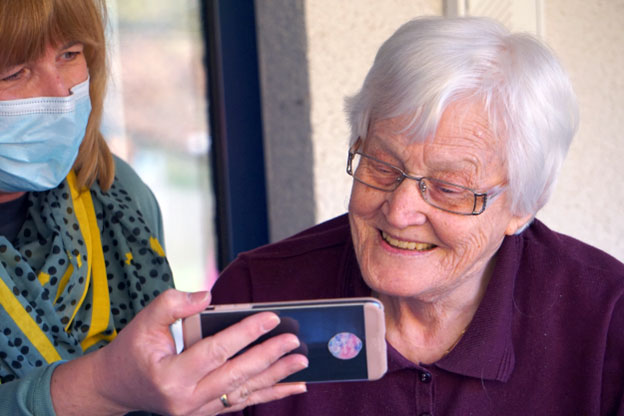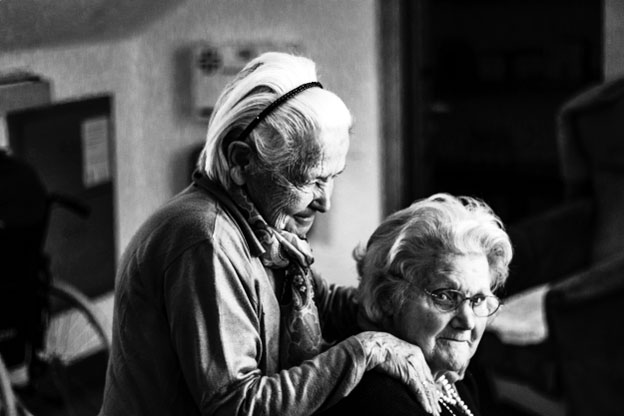When it comes to making sure that our aging loved ones are taken care of, there is a point where family members and caregivers may need to consider other options. Assisted living is one of those options, providing senior citizens with the help they need while still allowing them to enjoy a sense of independence. But how do you know when it’s time to look into assisted living for your loved one?

Physical Signs and Decline in Daily Activities
As we age, it is natural for our bodies to undergo changes that can impact our daily activities and overall quality of life. Recognizing when these changes may indicate a need for additional support and care is crucial for maintaining a safe and fulfilling lifestyle. Here are three physical signs that might indicate it is time to consider assisted living:
Difficulty with mobility and balance: Any decline in mobility and balance can significantly affect a person's safety and independence. Simple tasks like walking, climbing stairs, or getting in and out of a chair may become challenging and increase the risk of falls and accidents. Assisted living facilities offer assistance and support for individuals with mobility issues, providing a safer environment and specialized care to minimize the risk of injuries.
Frequent falls and accidents: Seniors living independently who experience frequent falls and accidents are at a higher risk of sustaining serious injuries. Falls can lead to fractures, head trauma, and other medical complications, greatly impacting their physical health and overall well-being. Assisted living communities are equipped with safety measures such as grab bars, non-slip flooring, and staff trained in fall prevention techniques to reduce the incidence of falls and ensure prompt assistance during emergencies.
Trouble with personal hygiene and grooming: Difficulty with personal hygiene can be an indicator of physical limitations or cognitive decline. Seniors who struggle with dressing, bathing, or maintaining cleanliness may neglect their personal care, leading to poor hygiene and an increased risk of infections. Assisted living facilities offer support with personal care tasks, ensuring that residents can maintain their dignity and cleanliness while receiving the necessary assistance for daily grooming routines.
Recognizing these physical signs of decline in daily activities is essential for the well-being of older adults. By considering assisted living early on, seniors can benefit from the care, support, and opportunities for socialization provided by these communities. Assisted living facilities offer a wide range of care services tailored to individual needs, ensuring that all aspects of physical health and daily life are taken into consideration.
Cognitive and Memory Changes
As seniors age, cognitive and memory changes are common, and they can significantly impact daily life and safety. Memory loss and forgetfulness are two signs that it might be time to consider assisted living.
Memory loss can make it difficult for seniors to remember important tasks, appointments, or even loved ones' names. This can lead to missed medications, bill payments, and other essential daily tasks. Forgetfulness can also increase the risk of accidents, such as leaving the stove on or forgetting to lock doors. In an assisted living facility, specialized memory care services are available to help support individuals experiencing cognitive decline. These services often include memory-enhancing activities, brain exercises, and structured routines that can help seniors maintain their cognitive abilities and engage in meaningful activities.

Confusion and disorientation are other cognitive signs that may indicate a need for assisted living. Seniors who experience confusion or disorientation may struggle to navigate their environment, get lost easily, or become disoriented in familiar places. Living alone can exacerbate these challenges and put seniors at risk. In an assisted living community, a structured and supportive environment can help reduce confusion and disorientation. Trained staff members can provide guidance and assistance, ensuring seniors feel safe and secure in their daily lives.
Overall, recognizing cognitive and memory changes is essential for ensuring seniors receive the appropriate care and support they need. Assisted living facilities offer specialized memory care services and a structured environment that can help seniors maintain their cognitive abilities and enhance their quality of life.
Emotional and Social Indicators
Increasing social isolation can be a telltale sign that it may be time for a senior to consider assisted living. Social isolation can have a significant impact on mental health and well-being, leading to feelings of loneliness, depression, and anxiety. Seniors who live alone may experience a lack of social interactions, which can further contribute to their isolation.
Assisted living facilities recognize the importance of social connections for seniors and offer numerous opportunities for socialization. Living in a community setting allows individuals to engage in activities and events with their peers, fostering a sense of belonging and companionship. Assisted living communities often have common areas, such as lounges or libraries, where residents can gather and socialize. They may also organize group outings, exercise classes, or hobby groups to encourage social interactions and create a vibrant social environment.
Depression and mood swings can also be indicators that it might be time for assisted living. Seniors who experience persistent sadness, withdrawal from activities they once enjoyed, or noticeable changes in their mood may benefit from the emotional support provided in an assisted living setting. Trained staff members and caregivers are available to offer compassionate care and support, ensuring seniors' emotional well-being is addressed. Assisted living facilities often have mental health professionals on staff or available through partnerships, providing residents with access to the necessary resources to address depression and mood-related concerns.
Caregiver Stress and Burnout
1. Overwhelmed family caregivers: Family caregivers face numerous challenges when providing full-time care for seniors. The physical, emotional, and financial toll can be overwhelming, leading to stress and burnout. Juggling daily tasks, managing chronic conditions, and ensuring the safety and well-being of their loved ones can become too much to handle.

Assisted living providing respite: Assisted living facilities offer much-needed respite for overwhelmed family caregivers. By entrusting the care of their loved ones to professionals, caregivers can take a break, recharge, and focus on their own well-being. Assisted living communities provide 24-hour care, ensuring seniors receive the assistance they need with daily activities, medication management, and personal hygiene. This allows caregivers to have peace of mind, knowing their loved ones are in a safe and supportive environment.
2. Decline in caregiver's health: The stress and demands of caregiving can take a toll on the caregiver's physical and mental health. Caregivers often neglect their own needs, leading to exhaustion, sleep deprivation, and neglecting their own health conditions. This can result in a decline in the caregiver's overall well-being, making it difficult for them to continue providing the necessary care.
Considering assisted living for well-being: Assisted living can be a beneficial solution not only for the senior but also for the caregiver's well-being. By transitioning to assisted living, caregivers can alleviate the burden and stress associated with full-time care, allowing them to prioritize their own health and well-being. Assisted living facilities offer a wide range of care services, including medication management, assistance with daily tasks, and access to medical care. This ensures that seniors receive the level of care they need while relieving caregivers of the immense responsibilities they once carried.
Conclusion
In conclusion, there are several signs that may indicate it's time for assisted living. These include overwhelmed family caregivers who are struggling to meet the demands of full-time care, as well as a decline in the caregiver's own health and well-being. Assisted living facilities offer respite for caregivers, allowing them to take a break and focus on their own needs.
Additionally, transitioning to assisted living can alleviate the burden and stress of caregiving, while ensuring that seniors receive the comprehensive care and support they need. Assisted living communities provide 24-hour care, assistance with daily activities and medication management, and access to medical services. This not only benefits the senior but also allows caregivers to prioritize their own health and well-being. With the wide range of care services available, assisted living facilities provide a safe and supportive environment where seniors can thrive and caregivers can find peace of mind.
Frequently Asked Questions
Frequently Asked Questions about Assisted Living
How do I know if my loved one will adjust well to assisted living?
Adjusting to a new living arrangement can be challenging for anyone, especially seniors. However, some signs indicate your loved one may adjust well to assisted living. These include a desire for social interaction, a decline in their ability to perform daily activities, a lack of support in their current home environment, or a growing need for specialized medical care.

What services are typically offered in assisted living facilities?
Assisted living facilities offer a wide range of services to support the needs of their residents. These may include assistance with daily activities such as medication management, personal hygiene, and mobility issues. Additionally, many facilities provide meals, housekeeping, transportation, and opportunities for socialization and engaging in various daily activities.
Can I visit my loved one regularly in assisted living?
Yes! Most assisted living facilities encourage regular visitation from family and friends. Visiting your loved one not only provides them with emotional support but also allows you to gauge their well-being and ensure their quality of care. Some facilities may also offer family events or activities to facilitate a strong sense of community and inclusion.
Is assisted living more expensive than in-home care?
The cost of assisted living varies depending on the location, level of care needed, and facility amenities. While the initial costs may seem higher than in-home care, assisted living often provides a comprehensive package that includes housing, meals, medical care, and social interactions. In-home care costs may accumulate over time as additional services and care providers are required.
How can I help my loved one transition to assisted living smoothly?
Transitioning to assisted living can be a significant change for seniors. To help them adjust smoothly, involve your loved one in the decision-making process. Encourage them to visit potential facilities, meet staff and residents, and share any concerns. Once they've moved in, offer emotional support, help them personalize their living space, and maintain regular communication to address any challenges or concerns promptly.


